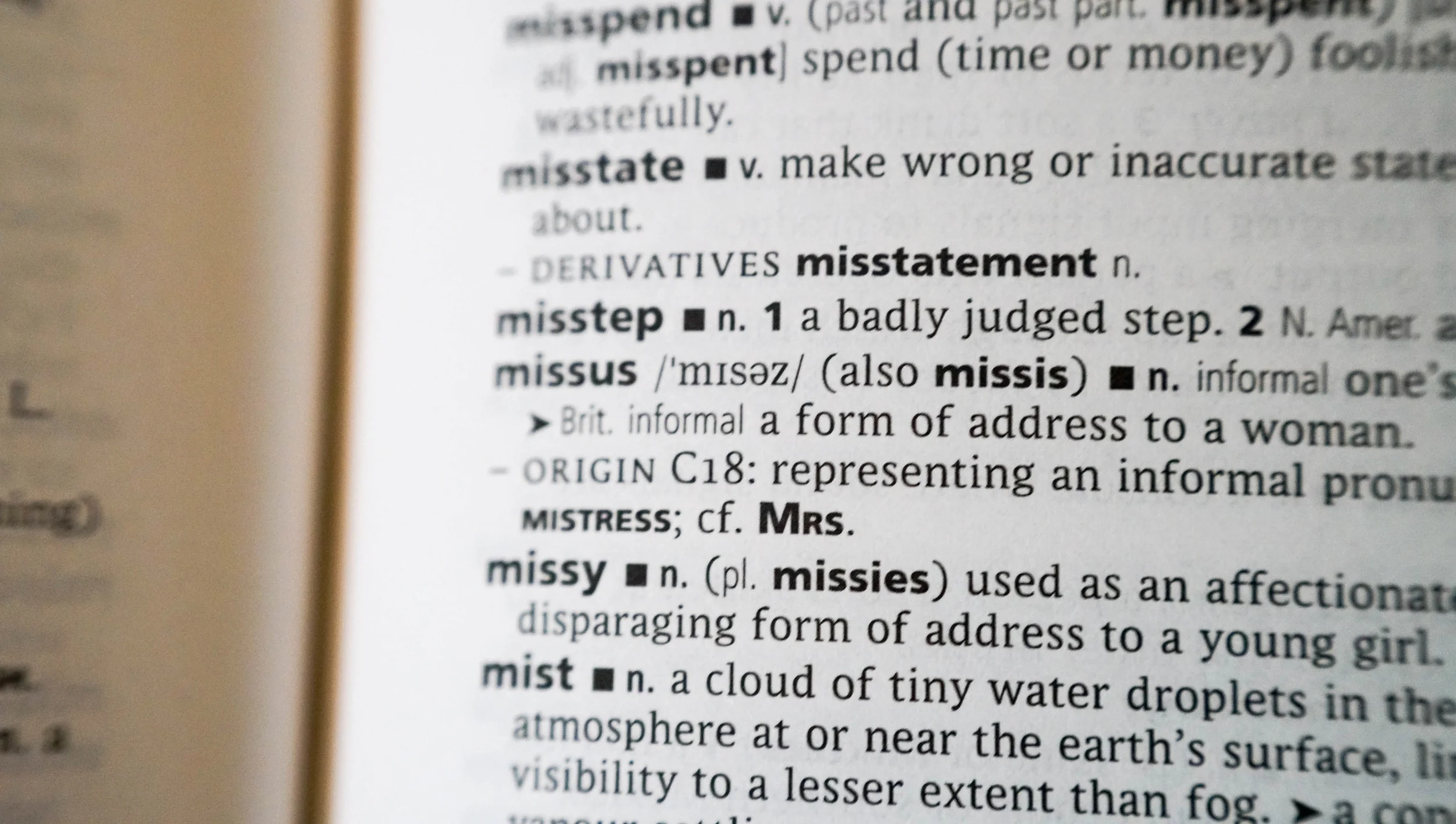4 Simple Steps for Doing Bible Word Studies
Do you know what you call a person who speaks 3 languages? Trilingual. Do you know what you call a person who speaks 2 languages? Bilingual. Do you know what you call a person who speaks 1 language? An American! (My European friends, most of whom are bi- or trilingual, love that joke). I hope you, if you are an American, are the exception, but the vast majority of us, as Americans, are pretty isolated linguistically, many of us flat out intimidated by languages other than our own. Add the words “Hebrew” and “Greek” to a discussion and we slap the nearest seminary student or permanently ban the word “Lexicon” from ever being spoken in our presence again. I was sitting on a plane a couple of years ago, grading a Ph.D. seminar paper that included a good bit of the original language of the Old Testament. The lady sitting next to me glanced over and said, “It’s Greek to me!” I smiled and responded, “Actually, it’s Hebrew.” Thankfully, she laughed.
But even if you consider yourself linguistically languid, or you can’t tell a Hebrew aleph from a Greek alpha (those are letters of the alphabet), YOU CAN do basic word studies on the Bible. Here’s how.
1. In your passage of choice, pick out 3-4 words to study.
“Which ones?,” you ask. “Such as these,” I reply. (a) Look for words (beyond conjunctions, prepositions, articles, etc.) that are repeated, which is one clue that they contribute in some way to a theme in the passage. For instance, the word normally translated as “content” in Phil. 4:1-13 crops up in verse 11 and again in verse 12. It is an important clue to that passage. (b) Zero in on words that you don’t understand. If you are reading Hebrews 2 and stumble over the word “propitiation” (HCSB) in verse 17, translated as “atonement” by the NIV and NET, write it down as a good candidate for a word study. (c) When you see different translations render a word differently, as in point “b,” that too flags a good word to study. If the translators vary on how best to translate a term, it probably has interesting nuances that will reward probing.
2. Get at the various ways the word could be used when the author wrote the book you are studying.
In other words, we want to understand the range of possible meanings for each word we are studying. If you think about it, you use the same word in many different ways all the time. How many uses for the English word “hand” can you think of right off the top of your head? I bet you could think of at least 8-10 with a little effort. “Hand me a brick.” “Give him a hand with that box.” “Give him a hand for that performance.” “The hand on the clock is bent.” “That horse must be 15 hands high.” “He’s a hired hand.” “She bit his hand.” “He built that by hand.” “He asked for her hand in marriage.” “He had a hand in organizing the business.” And without any effort, you intuitively understand the nuances of each of those statements. Isn’t language wonderful!
Now if you are studying a word from the Old Testament, you need to be able to access a Hebrew dictionary, and for the New Testament a Greek dictionary. You could use an Exhaustive Concordance, a Bible Software program (like Logos or Accordance), or you could use an online site. For the sake of space (and since many of you probably do not own a Bible software program or an exhaustive concordance yet) let me use an online site as an example. (If you want to explore all of these options further, the video linked at the end of this article goes into each, giving examples).
Let’s say that you are studying Rom. 3:23. You could, for instance, go to blueletterbible.org. I like Blue Letter Bible because of the English translations included, and a lot of good word study information is found on a single page. Some of the underlying resources are dated, offered free because they are public domain. But it is not a bad place to start for someone newly come to this aspect of Bible study. I will be reviewing and pointing you to other sites in the weeks and months to come.
The search box on Blue Letter Bible's landing page looks like this:
With the drop-down box choose a translation, and enter Rom. 3:23 in the search box where you see “Verse, Word(s) or Topic.” Now press Enter or click the search symbol. When the passage comes up, click the “Tools” button to the left of Rom. 3:23, which takes you to an interlinear on the verse, which looks like this:
Notice that you have English down the left side, with the corresponding Greek words down the right (I believe they use the word "Root" to mean a main word (we call it the "lexical form") from which the word forms in the sentence are derived). You can even click on the sound symbol to the right to hear how that Greek word is pronounced (you’re welcome). Down the middle of the box you have the Strong’s numbers that correspond to each Greek term (Strong's is keyed to the KJV, so it is dated, but again you can benefit from much that is here). For instance, click on the number to the right of “fall short,” 5302, and you have an overview of the Greek verb ὑστερέω, pronounced, “hü-ste-re'-ō.” Take a minute and look at the “Outline of Biblical Usage,” or better yet, Thayer’s Greek Lexicon two blocks down (click the “Click Here for the Rest of the Entry” to expand the full dictionary article). Thayer’s is an older Greek dictionary, which gives the possible meanings of the word in italics. Did you notice that “fall short” is just one possible meaning of the word. Others include “to lack” something. So write down the various possible meanings of the word.
3. See how the word was used elsewhere in the book you are studying or elsewhere in the Bible.
Another nice feature of blueletterbible.org is that if you continue to scroll down on the interlinear page we just looked at, you are given a concordance of that Greek or Hebrew term as it is used elsewhere! That is simply brilliant, because you can now see how your author or other authors in the New Testament used that word. For instance, scroll down and notice how that Greek word we just looked at (ὑστερέω, hü-ste-re'-ō) is used elsewhere.
(and the list continues as you scroll down).
Did you notice that it often is used with the sense of “lack.” Do you see any contexts that are similar to Paul’s use in Rom. 3?
4. Now think through which of the meanings in the range of possible meanings for this word was most likely the author’s intention in context.
In the case of Rom. 3:23, the idea of “fall short” certainly works, given the context of Rom. 3, where Paul emphasizes that no human being lives righteously, none being able to keep the law perfectly. However, it is interesting to consider the translation, “All have sinned and lack the glory of God.” What might it mean to lack God’s glory? Commentaries point to the “glory” as either referring to God’s presence, or human beings having lost the “glory of God,” that is the ability to reflect God’s image appropriately, with the Fall. So the translation “lack” would make sense in either case.
What word studies do, therefore, is help us probe the possible meanings of a term. This can aid our understanding of a passage significantly.
For a bit more on doing word studies, with on-screen examples, you can watch the video by that title on the Bible Study Methods & Resources page of this website. In the next few weeks we will take a look at missteps to avoid when doing word studies.
Other great word study tools to consider: STEP Bible (another online site that has easy access to word studies, lots of modern languages, but is still a bit limited on the primary English translations); and the software programs Accordance and Logos, both of which are PC/Mac, have the most up-to-date tools with almost endless expandability, have wonderful corresponding apps, and are affordable considering what you get. I will be reviewing these and other tools in the months to come.









